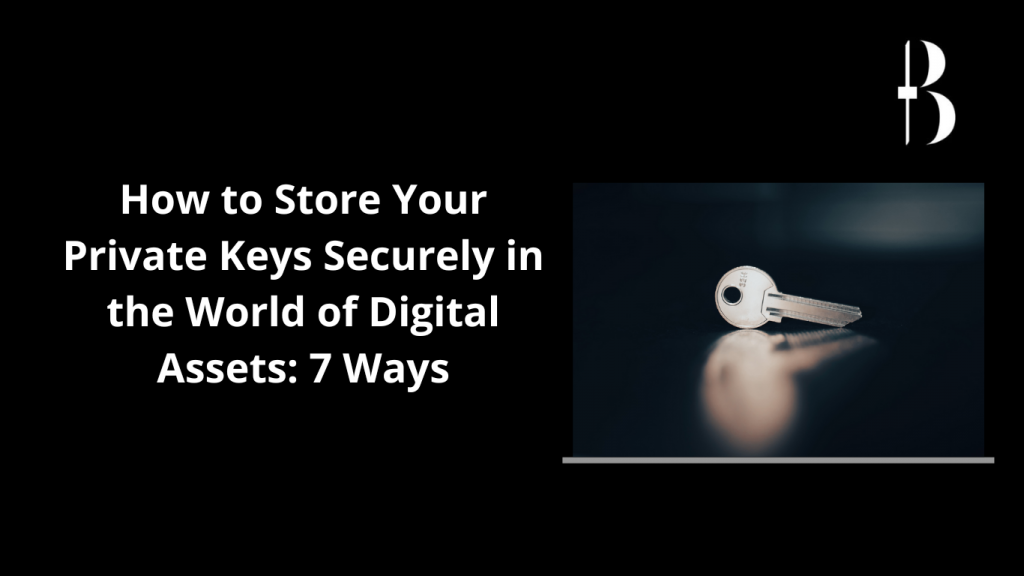The world of digital assets requires private keys. They allow you to access your money, and if they are stolen or misplaced, you could lose it all. Because of this, it is crucial to save your private keys securely.
Private key storage options are plentiful, but not all of them are created equal. Some methods are more convenient than others, and some are more secure. The advantages and disadvantages of each method will be covered as we look at seven different ways to keep your private keys in this post.
Warm Storage
The most practical way to keep your private keys safe is in hot storage. It entails keeping your keys on an internet-connected device, like a computer or phone. Hot storage is practical since it enables you to access your money whenever and wherever you are. Hot storage, though, is also less secure than other approaches. Attackers might be able to obtain your private key data if your device is lost or stolen.
Cold Staging
Your private keys are safer in cold storage. It entails storing your keys on a non-internet-connected device, like a hardware wallet or a USB drive. Since hackers have a tougher time accessing your data when using cold storage, it is more secure than when using hot storage. Cold storage is, however, less practical than heat storage. You are unable to access your money at any time or location.
Device Wallets
Private keys are physically stored in hardware wallets. Because they are made to guard against attacks, hardware wallets are a safe way to save your private keys. To protect your private information, hardware wallets frequently combine security measures like passwords, fingerprints, and PIN numbers.
Banana Wallets
Your private keys can be kept safely and conveniently in paper wallets. Using a key generator, paper wallets are created and printed. Paper wallets must be kept hidden and in a safe place.
Various Sign Storage
A method of storing your private keys called “multisig storage” necessitates several signatures in order to access your money. Because it makes it more difficult for attackers to access your money, multisig storage is a secure way to keep your private keys. You need to present the signatures of all cosigners in order to access your funds.
Custodial Keeping
Your private keys can be kept in “custodial storage,” which is when a third party keeps them on your behalf. Although keeping your private keys in custodial storage is practical, it is less secure than alternative options. You can lose your money if the third party is compromised.
Offline Keeping
Private key storage can be done offline, without an internet connection. Although offline storage is a safe way to keep your private keys, it is less practical than other options. You must transfer your keys to a device with an internet connection if you need to access your money.
Conclusion
Your private keys can be kept in a variety of ways. Every technique has benefits and drawbacks. The method that best suits your requirements and preferences should be used to store your private keys. Consult a professional if you’re unclear about how to keep your private keys safe.
- More Advice on Storing Your Private Keys
- Utilize various storage techniques.
- Keep your keys in a safe location.
- Lock up your keys.
- Safeguard your keys.
- Update your security software frequently.
- Be on the lookout for phishing scams.
- Don’t let anyone else have your keys.

